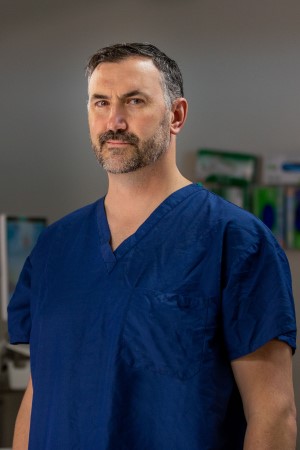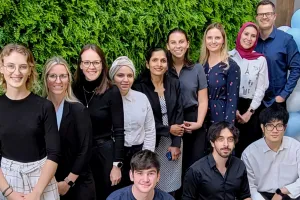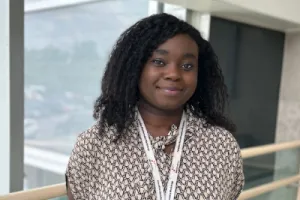Canadian researchers work to understand and improve health for Indigenous Peoples after surgery
 "Better quality research by Indigenous investigators and real time outcome monitoring for Indigenous patients are essential to eliminating structural racism in the healthcare system."- Dr. Jason McVicar.Researchers at The Ottawa Hospital and the University of Ottawa are building a research program to better understand Indigenous Peoples' experience of surgery in Canada. Their latest study, published in CMAJ, is the first to analyze all available surgical outcome data for this population.
"Better quality research by Indigenous investigators and real time outcome monitoring for Indigenous patients are essential to eliminating structural racism in the healthcare system."- Dr. Jason McVicar.Researchers at The Ottawa Hospital and the University of Ottawa are building a research program to better understand Indigenous Peoples' experience of surgery in Canada. Their latest study, published in CMAJ, is the first to analyze all available surgical outcome data for this population.
"Understanding surgical outcomes and access to surgical services is a first step towards addressing colonialism and structural racism within healthcare, so we can identify the gaps and determine what needs to be improved," said Dr. Jason McVicar, a Métis anesthesiologist at The Ottawa Hospital and assistant professor at the University of Ottawa.
The team identified 28 previously published studies that compared surgical outcomes of Indigenous Peoples with non-Indigenous people in Canada. These studies adjusted for possible confounding variables like age, medical conditions, rural or urban residence and income. Of the 1.9 million patients in the studies, 202,056 (10.2 percent) identified as Indigenous.
Taken together, data from these studies suggest higher rates of surgical complications, including infection and hospital readmission, among Indigenous Peoples compared to non-Indigenous people. Indigenous Peoples also had lower rates of life-saving surgeries, such as kidney transplant, cardiac surgery and c-sections, as well as lower rates of quality of life surgeries like knee and hip replacements.
The team also performed a meta-analysis of mortality data from four of the studies suitable for this analysis. This included a total of 5,939 participants, 292 of whom were Indigenous. After matching Indigenous with non-Indigenous patients who had similar surgeries, age and medical conditions, the researchers found Indigenous Peoples were 30 percent more likely to die after surgery.
"Access to surgery is essential for good health," said Dr. Daniel McIsaac, an associate scientist and anesthesiologist at The Ottawa Hospital, and associate professor at the University of Ottawa. "Many major illnesses require a trip to the operating room, so unequal access to surgery and poorer outcomes after surgery is a major problem."
While the study findings are consistent with inequities in surgical outcomes for Indigenous Peoples in other high-income countries, the team found the Canadian data to be limited and of poor quality, showing that more research is needed. For example, the studies included in their analysis used different ways of determining Indigenous identity, and none specifically addressed surgical outcomes for Inuit or Métis.
"This study tells Canadians two things. We need better data, and what data we have tells us that we need to do better," said Dr. McVicar. "Better quality research by Indigenous investigators and real time outcome monitoring for Indigenous patients are essential to eliminating structural racism in the healthcare system."
Dr. McVicar was one of three Indigenous authors on this study, along with Dr. Nadine Caron (First Nations) and Dr. Donna May Kimmaliardjuk (Inuk).
"Indigenous identity data isn't routinely collected by healthcare services," said Dr. McVicar. "One of the steps that's needed is for healthcare systems to figure out how to safely collect Indigenous identity data in a way that does not further contribute to systemic racism. Those solutions will only be successful if Indigenous communities are equal partners in the process."
See additional press release from the CMAJ.
Funding: This study was funded by The Ottawa Hospital Academic Medical Organization Innovation Fund and the Canadian Anesthesia Research Foundation.
Full Reference: Postoperative outcomes for Indigenous Peoples in Canada: a systematic review. Jason A. McVicar, Alana Poon, Nadine R. Caron, Dylan Bould, Jason W. Nickerson, Nora Ahmad, Donna May Kimmaliardjuk, Chelsey Sheffield, Caitlin Champion, Daniel I. McIsaac. CMAJ. May 17, 2021.
About The Ottawa Hospital
The Ottawa Hospital is one of Canada's top learning and research hospitals, where excellent care is inspired by research and driven by compassion. As the third-largest employer in Ottawa, our support staff, researchers, nurses, physicians, and volunteers never stop seeking solutions to the most complex health-care challenges. Our multi-campus hospital, affiliated with the University of Ottawa, attracts some of the most influential scientific minds from around the world. Backed by generous support from the community, we are committed to providing the world-class, compassionate care we would want for our loved ones. www.ohri.ca
About the University of Ottawa
The University of Ottawa is home to over 50,000 students, faculty and staff, who live, work and study in both French and English. Our campus is a crossroads of cultures and ideas, where bold minds come together to inspire game-changing ideas. We are one of Canada's top 10 research universities--our professors and researchers explore new approaches to today's challenges. One of a handful of Canadian universities ranked among the top 200 in the world, we attract exceptional thinkers and welcome diverse perspectives from across the globe. www.uottawa.ca
Media Contact
Amelia Buchanan
Senior Communication Specialist
Ottawa Hospital Research Institute
613-297-8315
ambuchanan@ohri.ca
Learn more about:
The Ottawa Hospital is a leading academic health, research and learning hospital proudly affiliated with the University of Ottawa and supported by The Ottawa Hospital Foundation.


